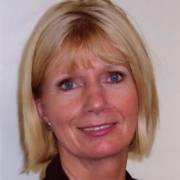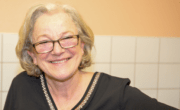Julia Feast OBE, describes her experience working with care leavers and those impacted by adoption and how our new FamilyConnect service will help support those who may not have the support available otherwise.
There is a natural curiosity for people to understand who they are, where they come from, and make connections with family members as illustrated by the many articles and programmes on this subject. For adopted people, and those who were brought up in care, there can be a greater need for them to access this information in an order that they can understand these things better. It can help them to build a fuller sense of identity and enables them to build a bridge between their past and present, and even the future.
 Living with unresolved issues can affect people in different ways throughout their lives and can have a devastating impact on both them and their families with, for example, emotional and mental health problems, and relationship issues. I have had the privilege of working for many years with adopted adults and people who were brought up in care. What I have learned is that the positive impact of having the opportunity to receive information from adoption and care records should never be under-estimated. It can help give people answers to the many questions they almost always have.
Living with unresolved issues can affect people in different ways throughout their lives and can have a devastating impact on both them and their families with, for example, emotional and mental health problems, and relationship issues. I have had the privilege of working for many years with adopted adults and people who were brought up in care. What I have learned is that the positive impact of having the opportunity to receive information from adoption and care records should never be under-estimated. It can help give people answers to the many questions they almost always have.
I will always remember Helen*, an adopted person I saw when I first started working in this area, who, after receiving the records relating to her origins and adoption, said:
“Until I received information from the adoption records, I have always felt that I have been living in a darkened room and now someone has switched the light on.”
This profound statement has always stayed with me and underlines the importance for people who have been separated from their families of origin to be able to access information, so that they can answer some of their questions. Access to knowledge about genetic and family origins is a matter of personal identity, dignity, and autonomy. It is important for individuals in making life choices and perhaps, also understanding their medical history.
However, it is not just about receiving information as many people also want to make contact with family members. This can be a complex journey and therefore it is crucial that people are able to receive the information, advice and support they need.
Johnny* who was 45 years old when he decided to access records relating to the time he was in care. He believed that his mother had just left him in the hospital when he was a few days old, and he always felt rejected and unwanted. When he located and accessed his records, he found out that his mother was just 16 years old when she had him and was very sad not to be able to care for him. He was shocked and upset to see that there were letters from her over the years asking about how he was. He had never been told about these and felt very sad. He decided to search for her and with the help of a support worker he was in touch with, he managed to trace her. She was delighted to see him and 10 years on they are still in touch. Johnny told me that receiving information from the records and understanding what had happened and why he was placed in care, changed his life. He said it improved his emotional well-being and for the first time in his life he felt a strong sense of belonging.
“This can be a complex journey and therefore it is crucial that people are able to receive the information, advice and support they need.”
Ann*, a 34 year old adopted person, had a very happy adoption and was devoted to her adoptive parents. However, she was always curious about her origins and really wanted to fill ‘the missing pieces in the jigsaw’ but felt guilty in case her parents would think they had not been good enough. Eventually she drummed up the courage and told her parents she wanted to do this and was surprised and very happy when they said that they completely understood and would support her. Five years on Ann said:
“The outcome of the search and reunion has gone beyond my wildest dream. It’s was incredible to meet people who looked like me and there is no doubt it has made me feel more complete as a person, but was what has been absolutely amazing is that my adoptive and birth family all get on well and we have now got a very large extended family.”
Whenever embarking on a search and especially when someone is considering contacting a long lost relative, it is important to be prepared that finding out about one’s past and perhaps making contact may not have the positive outcome hoped for:
At the age of 40 years old, Janet* an adopted person, located the whereabouts of her birth mother and made contact with her using the adoption worker who had been supporting her. Although Janet thought she was well prepared and had considered the positive and more difficult outcomes about making contact, including an outright rejection she was still devasted that her birth mother refused to have any contact with her. Janet said:
“It was horrible and absolutely wrecked me for a while. I could not quite believe how she would not want to have any contact with me and my feelings about this were all over the place for a while – oscillating between sadness, frustration, anger and, believe it or not, understanding. I am just thankful that I had support from my adoption worker who also put me in touch with other adopted people who had experienced rejection, and this helped a great deal.”
 Janet was fortunate enough to have the assistance of an adoption support worker, to help her consider some of the issues and outcomes she may encounter, as well as act as an intermediary. These days searching through social networks and finding people this way is very accessible. It can be so tempting to make direct contact and not use an intermediary. However, whilst this may work for some, for others it most certainly does not and in some cases can cause a great deal of distress. It is, therefore, so important for people to be aware of the perils of using social media to search for and make contact on one’s own.
Janet was fortunate enough to have the assistance of an adoption support worker, to help her consider some of the issues and outcomes she may encounter, as well as act as an intermediary. These days searching through social networks and finding people this way is very accessible. It can be so tempting to make direct contact and not use an intermediary. However, whilst this may work for some, for others it most certainly does not and in some cases can cause a great deal of distress. It is, therefore, so important for people to be aware of the perils of using social media to search for and make contact on one’s own.
In the current economic climate. we are increasingly aware that many people are not able to access the support and intermediary service they need. More and more we hear of these services being curtailed, or just not provided, primarily because of the lack of resources and the other competing demands on service provision. Hence is not given the priority it deserves. Whether or not the search for records and family is successful and whether or not the response from contact with birth relatives is positive or not it is essential that people have the opportunity to access the advice, information and support they need.
I believe that the creation of the FamilyConnect website will go a long way to providing the information and guidance that people will use for finding and accessing records and searching for and contacting birth relatives. They will go forward on the journey they choose with so much more confidence and knowledge.
*names have been changed.
Find out more about how our new FamilyConnect service is helping adults who were adopted or in care find answers about their origins.










